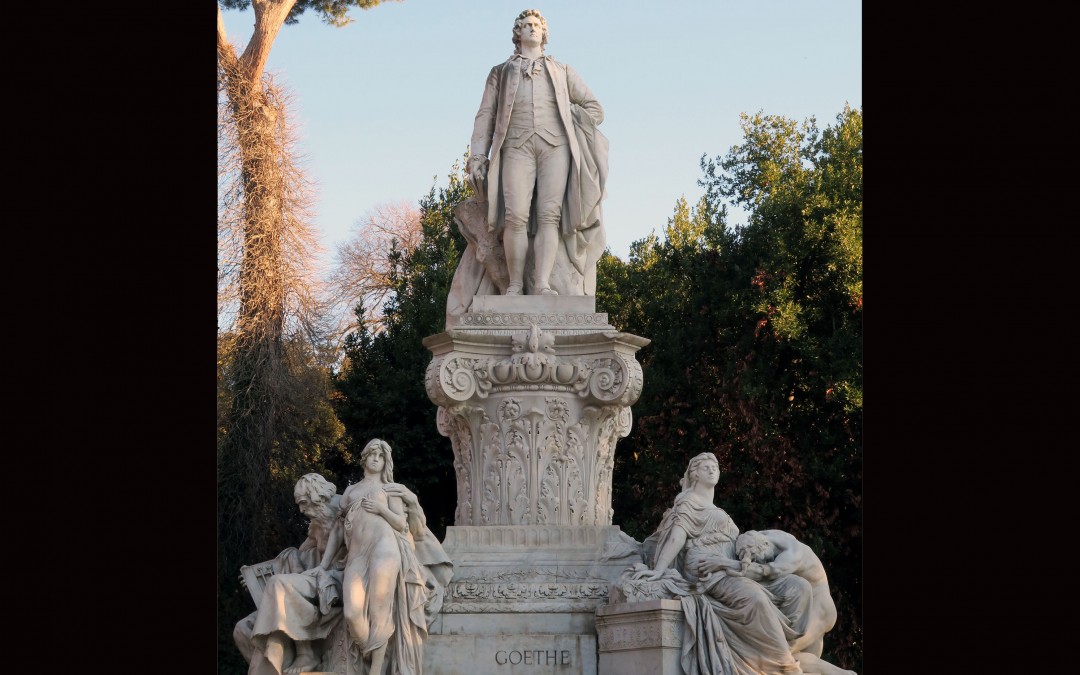
by Jack Ramey | Jun 27, 2018 | Jack Ramey, Poetry
By the Villa Borghese park and the statues Of Lord Byron and Goethe, I wait for a bus And watch two old homeless Roman women Sitting on a bench on the street opposite me Sorting through their ragged belongings, Plastic bags and shopping bags and blankets. It is cold. Christmas time in Rome, the city Of Christian light, of hope, of faith, of charity. They know that tonight like last night Will be dark and long and cold, huddled Together on the steps of a church, cuddling Each other for warmth. They are not begging Yet, like so many one sees around the Vatican Kneeling with head down and only hands holding A styrofoam begging bowl, or shaking one Or two cent coins in their cup murmuring Per favore, Signore, per favore. But here there is no favor, no permission, Only the gross peccata mundi, the mortal sins Of the world left naked, without remission....
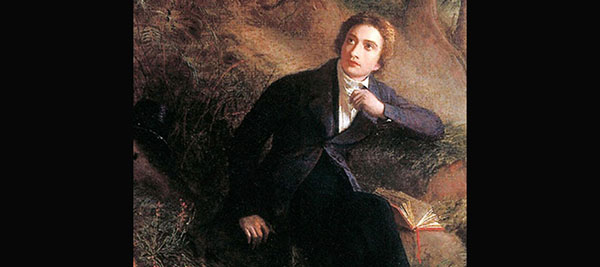
by Jack Ramey | Jan 31, 2018 | Art, Jack Ramey, John Keats, Poetry
Jack Ramey reads Ode To a Nightingale. http://www.springwoodpress.org/wp-content/uploads/2015/10/Nightingale1_01.mp3 My heart aches, and a drowsy numbness pains ….My sense, as though of hemlock I had drunk, Or emptied some dull opiate to the drains ….One minute past, and Lethe-wards had sunk: ‘Tis not through envy of thy happy lot, ….But being too happy in thine happiness, — ……..That thou, light-wingèd Dryad of the trees, ……………..In some melodious plot ….Of beechen green, and shadows numberless, ……..Singest of summer in full-throated ease. O for a draught of vintage! that hath been ….Cool’d a long age in the deep-delvèd earth, Tasting of Flora and the country-green, ….Dance, and Provençal song, and sunburnt mirth! O for a beaker full of the warm South! ….Full of the true, the blushful Hippocrene, ……..With beaded bubbles winking at the brim, ……………..And purple-stainèd mouth; ….That I might drink, and leave the world unseen, ……..And with thee fade away into the forest dim: Fade far away, dissolve, and quite forget ….What thou among the leaves hast never known, The weariness, the fever, and the fret ….Here, where men sit and hear each other groan; Where palsy shakes a few, sad, last grey hairs, ….Where youth grows pale, and spectre-thin, and dies; ……..Where but to think is to be full of sorrow ……………..And leaden-eyed despairs; ….Where beauty cannot keep her lustrous eyes, ……..Or new Love pine at them beyond to-morrow. Away! away! for I will fly to thee, ….Not charioted by Bacchus and his pards, But on the viewless wings of Poesy, ….Though the dull brain perplexes and retards: Already with thee! tender is the night, ….And haply the...
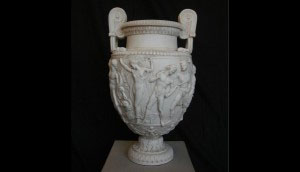
by Jack Ramey | Jan 30, 2018 | Art, Jack Ramey, John Keats, Poetry
Jack Ramey reads Ode on a Grecian Urn. http://www.springwoodpress.org/wp-content/uploads/2015/10/Grecian-Urn-2.mp3 Thou still unravish’d bride of quietness, …..Thou foster-child of silence and slow time, Sylvan historian, who canst thus express …..A flowery tale more sweetly than our rhyme: What leaf-fring’d legend haunts about thy shape …..Of deities or mortals, or of both, …..In Tempe or the dales of Arcady? What men or gods are these? What maidens loth? …..What mad pursuit? What struggle to escape? ……….What pipes and timbrels? What wild ecstasy? Heard melodies are sweet, but those unheard …..Are sweeter; therefore, ye soft pipes, play on; Not to the sensual ear, but, more endear’d, …..Pipe to the spirit ditties of no tone: Fair youth, beneath the trees, thou canst not leave …..Thy song, nor ever can those trees be bare; …..Bold Lover, never, never canst thou kiss, Though winning near the goal yet, do not grieve; …..She cannot fade, though thou hast not thy bliss, …..…..For ever wilt thou love, and she be fair! Ah, happy, happy boughs! that cannot shed …..Your leaves, nor ever bid the Spring adieu; And, happy melodist, unwearied, …..For ever piping songs for ever new; More happy love! more happy, happy love! …..For ever warm and still to be enjoy’d, …..For ever panting, and for ever young; All breathing human passion far above, …..That leaves a heart high-sorrowful and cloy’d, …..…..A burning forehead, and a parching tongue. Who are these coming to the sacrifice? …..To what green altar, O mysterious priest, Lead’st thou that heifer lowing at the skies, …..And all her silken flanks with garlands drest? What little town by river or sea...
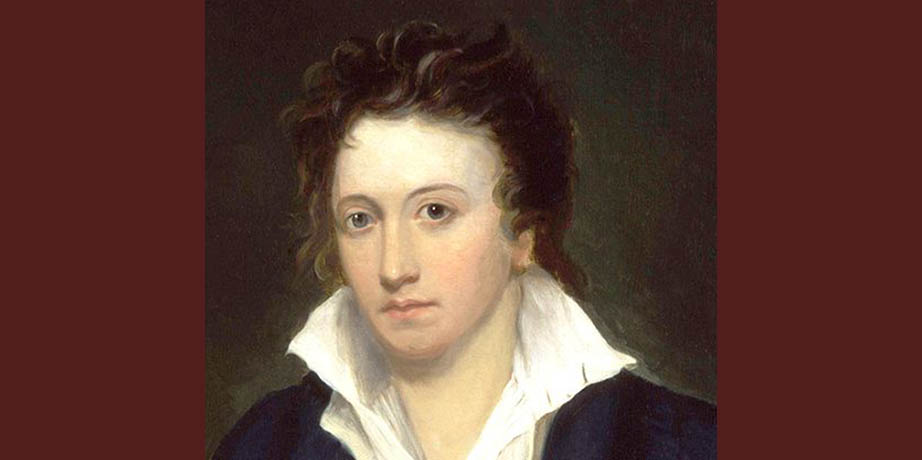
by Jack Ramey | Jan 29, 2018 | Art, Jack Ramey, Poetry, Shelley
I O wild West Wind, thou breath of Autumn’s being, Thou, from whose unseen presence the leaves dead Are driven, like ghosts from an enchanter fleeing, Yellow, and black, and pale, and hectic red, Pestilence-stricken multitudes: O thou, Who chariotest to their dark wintry bed The wingèd seeds, where they lie cold and low, Each like a corpse within its grave, until Thine azure sister of the Spring shall blow Her clarion o’er the dreaming earth, and fill (Driving sweet buds like flocks to feed in air) With living hues and odours plain and hill: Wild Spirit, which art moving everywhere; Destroyer and Preserver; hear, O hear! II Thou on whose stream, ‘mid the steep sky’s commotion, Loose clouds like Earth’s decaying leaves are shed, Shook from the tangled boughs of Heaven and Ocean, Angels of rain and lightning: there are spread On the blue surface of thine airy surge, Like the bright hair uplifted from the head Of some fierce Maenad, even from the dim verge Of the horizon to the zenith’s height, The locks of the approaching storm. Thou dirge Of the dying year, to which this closing night Will be the dome of a vast sepulchre Vaulted with all thy congregated might Of vapours, from whose solid atmosphere Black rain, and fire, and hail will burst: O hear! III Thou who didst waken from his summer dreams The blue Mediterranean, where he lay, Lulled by the coil of his crystalline streams, Beside a pumice isle in Baiae’s bay, And saw in sleep old palaces and towers Quivering within the wave’s intenser day, All overgrown...
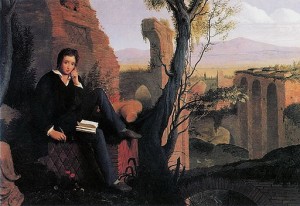
by Jack Ramey | Jan 28, 2018 | Art, Jack Ramey, Poetry, Shelley
I met a traveller from an antique land Who said: “Two vast and trunkless legs of stone Stand in the desert . . . Near them, on the sand, Half sunk, a shattered visage lies, whose frown, And wrinkled lip, and sneer of cold command, Tell that its sculptor well those passions read Which yet survive, stamped on these lifeless things, The hand that mocked them, and the heart that fed: And on the pedestal these words appear: ‘My name is Ozymandias, king of kings: Look on my works, ye Mighty, and despair!’ Nothing beside remains. Round the decay Of that colossal wreck, boundless and bare The lone and level sands stretch far away.” by Percy Bysshe Shelley (1792-1822) Portrait of Shelley Writing Prometheus Unbound by Joseph Severn (1793–1879) via Wikimedia Commons Jack Ramey talks about Shelley and reads Ozymandias. Shelley was a radical. He hated tyranny and loved freedom and liberty and the rights of the common man. The Mask of Anarchy, Prometheus Unbound, and The Triumph of Life are all great long poems that celebrate the triumph of libertarian values over tyranny. Shelley’s sonnet, Ozymandias, is one of his most famous poems. It began as a friendly competition between Shelley and his friend Horace Smith, based on a recent announcement of the British Museum‘s acquisition of the adjacent statue. They chose a passage from the Greek Historian Diodorus, which described a massive Egyptian statue and quoted its inscription: “King of Kings Ozymandias am I.” This fine poem reflects Shelley’s view that tyranny cannot last and that tyrants will always vanish in the end...
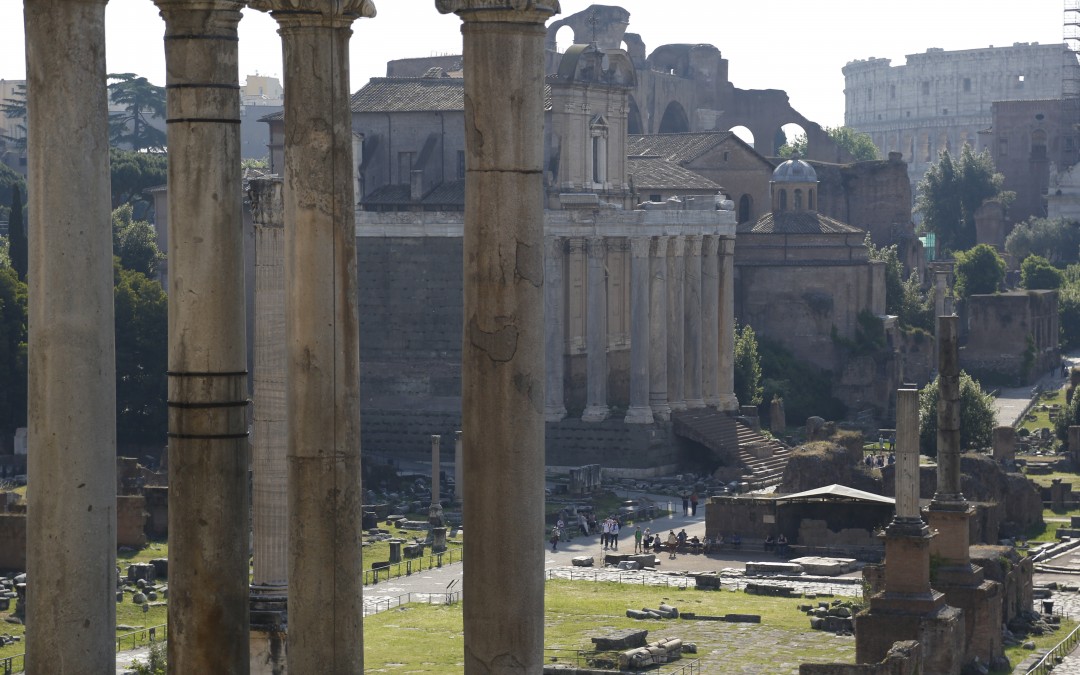
by Jack Ramey | Jan 24, 2018 | Jack Ramey, Poetry
III The ancient Forum Romanum: a miracle of marble! Columns Ionian and Corinthian and statues of gods And consuls, temples lined inside and out with marble And mosaic and tiles. Now ruins. Used for centuries As a quarry to be mined by Bishops and Popes To beautify their Christian temples that sit on the ground Of once proud basilicas and temples dedicated to The many, not the one deity. The Pantheon a temple to All the gods and goddesses. Now one of the many churches Named for Mary and the statues of deities replaced By saints. Peter for Pan. Dominic for Apollo, and Maria Grazie Plena for Roma or every goddess ever prayed to In the vast empire of once accepted worship: Isis, Inanna, Hathor. The outside once was covered with marble. Two or Three pieces still exist. Holes like those on the Coliseum Walls show where the marble was affixed, then ripped off. Who then is left to make just reparation to the ancient gods? ...







